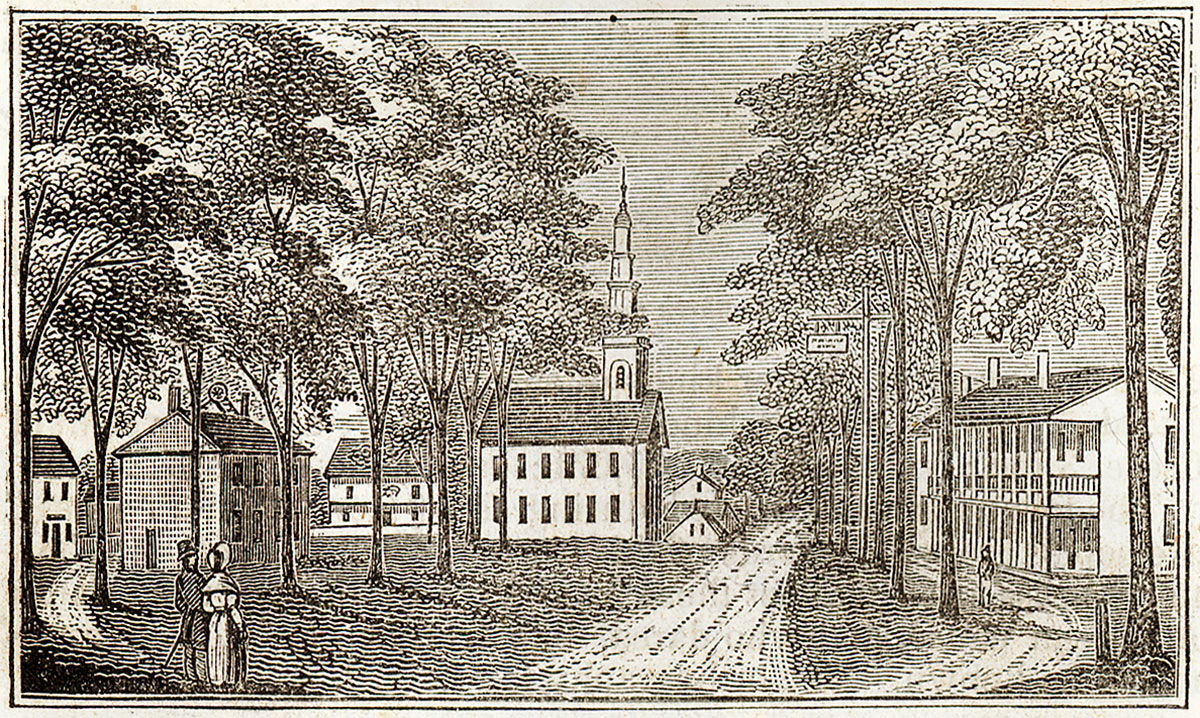 MENU
MENU
 MENU
MENU

A view of Deerfield's main street from John Warner Barber's Historical Collections, 1839, pg. 246. Image courtesy of Pocumtuck Valley Memorial Association Library.
Orra White's family was well off and Edward Hitchcock's far less so, but their similar cultural and religious roots and mutual love of nature and the sciences provided fertile ground for romance. They were raised in traditions highly skeptical of showy emotion, yet their courtship was more passionate than today's common view of this period might suggest.
Orra grew up in comfortable surroundings in the small western Massachusetts town of South Amherst. Her parents took an enlightened attitude toward their daughter's education, valuing her intelligence as much as that of their sons. Bright and eager to learn, Orra was at first educated alongside her brothers at home by a tutor. Later, she attended school in South Hadley and then at a boarding school nearly 100 miles away near Boston. She excelled at mathematics, Greek, Latin, astronomy, cartography, and art.
Not unusual at this time, the Whites lost several children to early death—Orra was the only daughter to survive childhood—so awareness of the precariousness of life was a daily presence. The family found emotional support and intellectual guidance through their Protestant Congregational beliefs.
Edward was the youngest of five children, all of whom lived to adulthood. He was raised in Deerfield, a farming village about 25 miles north of Orra's hometown. The Hitchcocks were not well off, but they did not suffer grinding poverty and were able to meet more than just the basic needs. His father, Justin, was a hatter who also wrote poetry, led shape-note singing in the church choir, built his own musical instrument, and held positions of trust in the town. His mother, Mercy, came from a locally prominent family and is generally credited as a strong, intelligent, stable influence on her children. When Edward was still a boy, the family's Orthodox Congregational church took on a Unitarian pastor, Samuel Willard. Although Justin opposed Unitarianism, the family remained with the church, attracted by Willard's piety, charisma, and tolerance.
Edward and his siblings were among the first students at Deerfield Academy, established in 1797, and opened to students in 1799. From 1806 to 1810, he attended winter sessions, when his labor wasn't needed at home. Edward was an intellectually precocious boy whose love for astronomy and other sciences showed up early. “I was treated very leniently by my father and brother, who probably did not know what to do with me,” he observed later in life, “but saw plainly that I should not become distinguished as a farmer.”